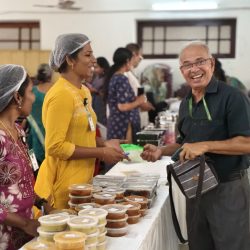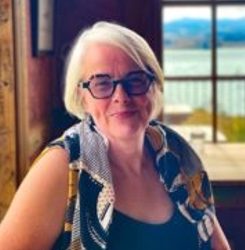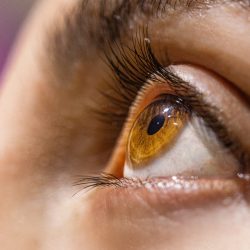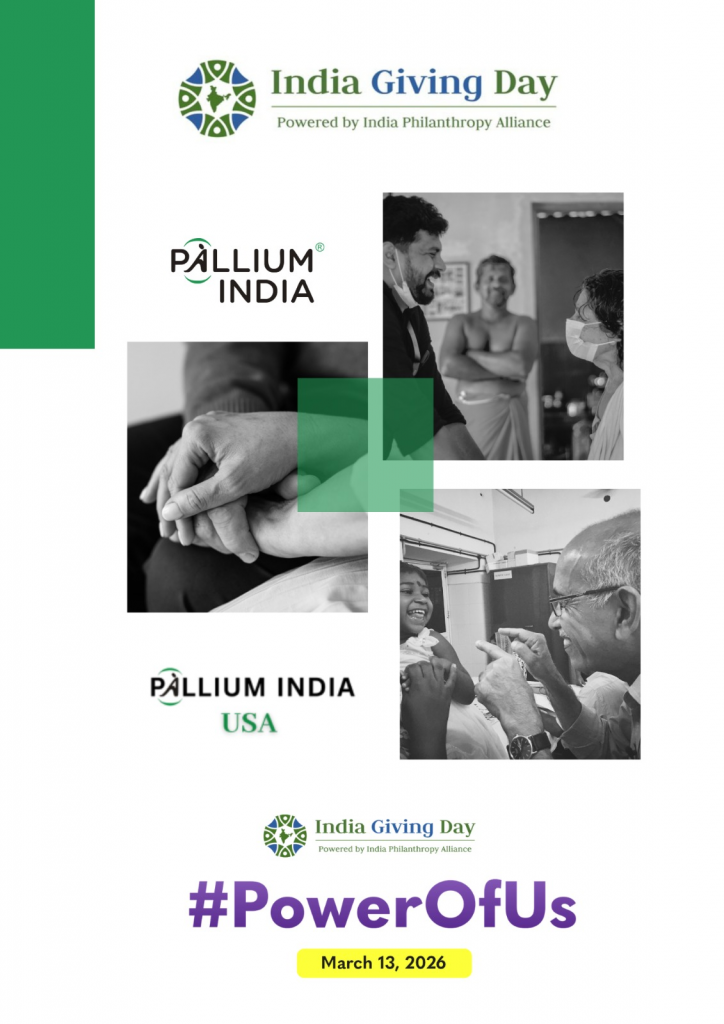August 2015
Dear Friends,
Hidden Lives, Hidden Patients: Lives of people on wheelchair
 The theme of this year’s World Hospice and Palliative Care Day is ‘Hidden Lives, Hidden Patients‘. The lives that are hidden in the developing world do not exactly follow the pattern of those in the western world. Take the case of paraplegics, for example. The west has a system for their care and rehabilitation, which is totally lacking in, say, India. Typically, following a road accident, a fall from a tree or from a construction site, a young man in his twenties becomes paraplegic. He gets an initial expensive treatment including several MRIs and a surgery, which often overnight convert a family to the ‘below poverty line’ category. In a few weeks, they are asked to go back home with a urinary catheter, with an advice to come back to change it in three weeks.
The theme of this year’s World Hospice and Palliative Care Day is ‘Hidden Lives, Hidden Patients‘. The lives that are hidden in the developing world do not exactly follow the pattern of those in the western world. Take the case of paraplegics, for example. The west has a system for their care and rehabilitation, which is totally lacking in, say, India. Typically, following a road accident, a fall from a tree or from a construction site, a young man in his twenties becomes paraplegic. He gets an initial expensive treatment including several MRIs and a surgery, which often overnight convert a family to the ‘below poverty line’ category. In a few weeks, they are asked to go back home with a urinary catheter, with an advice to come back to change it in three weeks.
 This is not the average patient who comes to a western hospice. The palliative care stream in Kerala, by and large, have chosen to include them in the purview of palliative care. Often we see them with huge, deep pressure sores. Even when the acute urinary infection is controlled and pressure sore is attended to, they are limited to confinement within four walls, because despite a wheelchair being available, no one teaches how to mobilise them. Hardly any home is barrier-free. Though there are side-walks for the roads, there is no slope at intersections, so wheelchairs cannot be manoeuvred into them. No one cares for zebra signs. There are no special facilities for the disabled.
This is not the average patient who comes to a western hospice. The palliative care stream in Kerala, by and large, have chosen to include them in the purview of palliative care. Often we see them with huge, deep pressure sores. Even when the acute urinary infection is controlled and pressure sore is attended to, they are limited to confinement within four walls, because despite a wheelchair being available, no one teaches how to mobilise them. Hardly any home is barrier-free. Though there are side-walks for the roads, there is no slope at intersections, so wheelchairs cannot be manoeuvred into them. No one cares for zebra signs. There are no special facilities for the disabled.
On July 22, five people on wheelchair – one person with quadriplegia and four with paraplegia – got together with government officials, doctors and social activists to discuss how Trivandrum city can be made wheelchair friendly. The discussions were illuminating. We shall prepare the proceedings so that whatever is planned can be shared with the rest of India.
Action Plan soon for wheelchair-friendly city: video – Asianet News
Big Strides Needed for Safer Steps: report by Archana Ravi in The New Indian Express
Action plan soon for wheelchair friendly city: report by The Times of India
–
Desert Rose 2015 – an exhibition of art and craft
 Pallium India, in collaboration with Canara Bank, is conducting an exhibition and sale of paintings & craft work at Trivandrum. The items that will be showcased at the exhibition have been created by our patients, volunteers and well-wishers.
Pallium India, in collaboration with Canara Bank, is conducting an exhibition and sale of paintings & craft work at Trivandrum. The items that will be showcased at the exhibition have been created by our patients, volunteers and well-wishers.
We invite you all to be a part of the ‘Desert Rose 2015’ from 6th to 8th August, at Trivandrum.
Pallium India looks after about 60 people, mostly young men and women, who are paralyzed from the waist down. Our rehabilitation services offer them physical rehabilitation and teach them some vocation so that they can earn for themselves. Many of them rediscover their artistic talents.
The funds raised from this event will be used for patient care as well as for the education of our patients’ children.
We request your support. If you wish to make a donation to support the event, please contact us.
Date: 06 Aug 2015 to 08 Aug 2015
Venue: Regional Office Canara Bank, Spencer Junction, Statue, Trivandrum
Contact: [email protected] / +91 9746745502
–
The NCD Alliance reaches out to touch lives in India
Sir George Alleyne called it a stroke of genius for major NGOs in the field of Non-Communicable Diseases (NCDs) to form the NCD Alliance representing 880 member organizations in 170 countries. The objective: cooperation among international non-government organizations to achieve common goals for NCDs, the ultimate goal being the control of Non-Communicable Diseases – cancer, hypertension, diabetes, chronic lung disease, dementia and many others which today cause a lot of morbidity and premature deaths. 
Under the leadership of Dr Renu Garg, NCD Regional Advisor, WHO SEARO (South East Asian Regional Office) and Ms Katie Dain, Executive Director, The NCD Alliance, ably assisted by Ms Alena Matzke and Ms Cristina Parsons Perez, the representatives of non-government organizations from 13 different countries in the region got together in Delhi on 9th and 10th of July to discuss action plan for the future. Sir George Alleyne and Dr Srinath Reddy (Public Health Foundation of India) were two stalwarts who participated in the deliberations.
We are glad to report that in keeping with the global NCD goals, palliative care certainly finds a place in the plans. It will be a struggle, though, because in this region very few countries have reasonable facilities for palliative care. They are either budding or non-existent. But there was almost universal agreement that palliative care must be integrated with NCD control program “across all levels of health care” as Sir George Alleyne hastened to add.
–
Rani is gone
Rani (name changed), whose story we had shared with you on 28 June, died peacefully on the morning of Saturday, July 4. She had only five days to live after she reached Chennai. But she died free of pain and free of the maggots and ants that were feeding on her infected leg and tormenting her. She also satisfied many of her desires – some of her favourite food (her life since the tsunami of 2004 did not offer much except very basic needs), including fish. We have unending respect for Dr Republica Sridhar and her team at Karuna Sagar, Chennai, who ordinarily serve vegetarian food but made an exception and got Rani the fried fish that she had asked for, on the last day of her life.
There is one wish, however, that could not be fulfilled. She wanted to see her brother again – the fourteen year old was away, at Puducherry. He had wanted to stay on at Puducherry when Rani was brought to the hospital at Chennai. We found that he had gone out in a fishing boat (we did not know that he was already doing a man’s work) and would not be back for about four days. He could not be reached. Kind Dr Republica Sridhar has got a photograph of the cremation. The brother can at least have the photograph with him, as well as several photographs taken during Rani’s stay in Chennai.
Rest in peace, Rani.
–
A Tryst with Thursday
Smriti Rana, Consulting Psychologist and Program Director for Children’s Palliative Care Project, writes about some of her experiences at Pallium India’s weekly Children’s Palliative Care Clinic:
How much goodness can one day hold?
A lot, believe me. Let me share some of the stories from our Thursday children’s palliative care clinic at SAT Hospital, Trivandrum.

Devu
Seen in this series is Sashikala, but we all call her Devu. She is a little firebrand, who is normally very particular about her personal space and what she sees as hers. When I accidentally placed my hand on her case file, she was distraught and insisted on holding it close to her chest, even though the file was probably as big as she was. Yes, quite a bit of history in that file.
Now bereft of another one of my most-used tools of universal language, the task of building rapport with her fell upon our trusty old friend who has helped countless people with children – the reliable game of Peek-a-Boo.
And this is what happened. I was not only rewarded with that delicious smile; as I bid her goodbye, she came up to me and planted the teeniest of kisses on my cheek, pulled away and gently held her hand against my face for a couple of seconds. I was too scared to move, afraid she might be offended by the intrusion on her personal space, and resisted (with a lot of difficulty) the urge to give her a giant hug.


Rahul & Anoop
Read Rahul’s and Anoop’s stories here….
–
Angels with us unawares
A few weeks ago, we came across a mother of a sick child, whose situation was so dire, with such formidable odds, that she was considering ending it all. Separated from an unsupportive and abusive husband, estranged from family, ravaged by the illness of a sick child and unable to financially support her other two children, this mum was left with no choice but to place her older daughter in an orphanage and her other son in the care of a relative who now thinks it best that there be no contact between them. She was broken by her circumstances and isolated in her overwhelming grief. Her only source of support, her own mother, had died a month ago after suffering a stroke. This series of losses left her standing on this ledge. It is not far-fetched in these cases to imagine that the children would be at risk too. She graciously accepted our request to come in to our main facility and speak with us. We were keen on assessing the risk and providing crisis intervention for potential suicide. After an hour and a half, we felt we had gotten somewhere, and that, at least for the moment, the risk had abated.
Before she left, I remembered a package that had been sent by one of our donors. A certain Ms. Mehra, a ridiculously large-hearted person, had called me saying that she wanted to send across a few clothes and bits of jewelry that little girls would enjoy. I wasn’t quite sure how that would fit into the toy donation drive, but then she said she was also sending a beloved teddy bear. The package had been lying unopened in the room where the toys are being kept safe, guarded by almost everyone who works at Pallium India (yes we are VERY protective of these gifts). I asked the mother to hold on a bit and on a whim, opened this package for the first time. The clothes in that care package were exactly this child’s size. Down to the last stitch. The mother looked at me in shock and asked me how I knew. The only answer I could give her was that I didn’t, but clearly they were meant for her daughter. And that teddy bear too, now has a loving home.
I need you to understand that this is a mother who has never been able to afford clothes for her children. On two occasions she had come in, once with her unwell child in tow, not having eaten because they didn’t have the money. A package of fresh clothes, in the right size, in colours a little girl would like, are nothing short of a miracle.
As it usually happens, it is not possible to be a 100% certain whether we had achieved what we had set out to do when the intervention session had ended. But I will tell you this. The look on her face as she held those clothes in her hands has left me with no doubt that she now believes there are better days ahead.
So, you should know, all of you who are sending in things that don’t seem like much to you (some of you have even apologized for not being able to give more) – one of you, not metaphorically, but quite literally may have saved not just one, but two precious lives.
And THAT, right there, is the power you hold to transform lives even from afar. You have our eternal gratitude.
Read another story about the children’s palliative care clinic, “Bringing out the big guns”.
–
Donate Toys for Children!
We are happily accepting toy donations for our weekly children’s palliative care clinic. Certain specifications need to be considered before sending the toys across, due to the nature of the children’s illnesses.
Kindly avoid toys with small breakable parts, anything with batteries, toys with sharp edges, regular sized Lego pieces, jigsaw puzzles with small pieces, games involving liquids (like the ones that shoot rings onto sticks at the press of a button), stuffed toys that have fine hair and fluff, etc.
If you are interested in sending something across, do call us (+91-9746745497) or write to us: [email protected].
Thank you very much!
–
Thank you, Mr Tony Devassy
 It was Pallium India’s privilege to receive a visiting dignitary, Mr Tony Devassy, the founder-president of Care and Share, at Trivandrum. He joined our team on home visits, manouvering difficult terrain, and enjoying it.
It was Pallium India’s privilege to receive a visiting dignitary, Mr Tony Devassy, the founder-president of Care and Share, at Trivandrum. He joined our team on home visits, manouvering difficult terrain, and enjoying it.
Care and Share’s hugely successful musical event “Ganolsavam” has been consistently fund-raising to support us.
Mr Tony Devassy, Mr Ashley Elanjickal and others, thank you very much for the visit and for the support.
–
Scholarships available for six weeks certification courses
The Indo American Cancer Association and John and Editha Kapoor Charitable Foundation, in association with Trivandrum Institute of Palliative Sciences, are offering scholarships to practising doctors and nurses, who are interested in learning fundamentals of Palliative Care.
The scholarships are offered to 12 most deserving candidates every year, for the following courses:
- 6 weeks Certificate Course in Palliative Medicine
- 6 weeks Certificate Course in Palliative Nursing
The details of the training centres where these courses are offered are given below. Please contact the respective training-in-charge for application details.
1. Trivandrum Institute of Palliative Sciences, Trivandrum
Dr. Sreedevi Warrier: [email protected]
2. MNJ IO and Regional Cancer Centre, Hyderabad
Dr Gayatri Palat; Ms Vineela: [email protected]
3. Bhagwan Mahaveer Cancer Hospital and Research Centre, Jaipur
Dr Anjum Joad; Dr Shikha Jain: [email protected]
4. The Gujarat Cancer & Research Institute, Ahmedabad
Dr Geeta Joshi: [email protected]
5. Tata Memorial Centre, Mumbai
Dr Mary Ann Muckaden: [email protected]
6. SGCCRI, Kolkata
Dr Rakesh Roy: [email protected]
Click here for Guide and Practical Tips for Centres & Coordinators
–
Upcoming Courses
TIPS, Trivandrum, Kerala
- Six Week Certificate Course in Pain and Palliative Medicine (CCPPM) in 2015 – 7 September, 2 November.
- Six Week Certificate Course in Palliative Nursing (CCPN) in 2015 – 7 September, 2 November.
- 10-day Foundation Course in Palliative Medicine – 7 Sep 2015, 2 Nov 2015, 7 Mar 2016, 2 May 2016
- 2-day Volunteers Training Program is conducted every month at Trivandrum Institute of Palliative Sciences, Arumana Hospital, Trivandrum. Anyone interested in learning about palliative care can attend.
- Contact: [email protected], +91 471-2468991, 9746745497.
GCRI, Ahmedabad, Gujarat
- Six Weeks Certificate Course in Pain and Palliative Medicine (CCPPM) Sep 1, 2015
- Six Weeks Certificate Course in Palliative Nursing (CCPN) – Sep 1, 2015
- Contact: [email protected]
MNJIO & RCC, Hyderabad, Telengana
- One Month Certificate Course in Pain and Palliative Medicine (CCPPM) for Doctors, Nurses, Social Workers and Volunteers
- Contact: [email protected], +91 91772 38901
BMCHRC, Jaipur, Rajasthan
- 6 weeks’ Certificate Course in Pain and Palliative Care for Doctors and Nurses
- Contact: Dr Anjum Khan Joad. [email protected].
For more details on the courses we offer, please visit: https://palliumindia.org/courses/
–
Palliative Care Sensitisation program
Pallium India is planning to conduct a sensitisation program on palliative care for Social Work Students, all over Kerala. As part of this, request letters have been sent to 30 MSW colleges in Kerala.
If you are interested to know more or if you wish to be a part of this program, please write to us: [email protected]
–
Vacancy: Manager- Fundraising / Fundraising Executive at TIPS
Trivandrum Institute of Palliative Sciences (TIPS), an organ of Pallium India, invites applications for the post of Manager – Fundraising / Fundraising Executive.
Role:
- Mobilise individuals & institutions to contribute resources (financial, material, others) in support of the organisation’s objectives. This is to be done by effectively inspiring new supporters to raise money, while maintaining and developing relationships with existing supporters.
- Analyse data and locate trends in resource development and accordingly evolve plans to improve donor servicing, operations and fund raising.
Responsibilities:
- Organizing traditional activities
- Raising awareness about the organization and its work at local and national levels
- Overseeing corporate fund raising (CSR)
- Managing and updating databases to record donor contact and preference information
- Making risk analyses and balancing time-cost ratios to focus effort on the most appropriate fundraising activities
- Effectively organise fund raising events in different areas
Qualifications:
- Bachelor’s degree required and management experience a plus
- 2-3 years of experience of working in an NGO or demonstrated familiarity with sustainability issues
- Proven track record in fund raising or business development
- Excellent strategic thinker, bridging environment and development challenges with business and government imperatives
- Strong and proven business acumen
- Outstanding communication skills
- Proven relationship building skills. Proficiency in MS-Office required
- A committed team player and an ability to prioritize and deliver on commitments
- Proven ability to work effectively both independently and in a team-based environment
- Please send your resume to [email protected] / [email protected] / call: +91-9746745497
–
 Palliative Care Information Centre
Palliative Care Information Centre
Contact Pallium India’s Information Centre (9 am to 12 noon) for information related to palliative care and about establishments where such facilities are available in India.
Telephone: +91-9746745497 or E-mail: [email protected]
Address: Pallium India, Arumana Hospital, Perunthanni, Trivandrum
For more details, please visit: https://palliumindia.org/info-centre/
–
News from around the world
- Study: Chemo doesn’t help end-stage cancer patients
- Dying with dignity – what happens to the homeless?
- Transgendered plight and medical acceptance
- ‘We treat everyone the same: Lesbian, gay, bisexual, and trans*people invisibility in end of life care’
- The Error in ‘There’s Nothing More We Can Do’
- Cancer and the Struggle for Palliative Care in Armenia
- Study shows that early intervention of palliative care has cost and patient benefits
- Palliative care for children with cerebral palsy in India
- An interview with Dr Sreedevi Warrier of Pallium India in “Doctor Live” [Malayalam Video]
- Addressing the “massive need” for palliative care in West Bengal
- Palliative Care on the Move in Northern Province, Sri Lanka
- Emergency Buddhism
- The amazing story of the man who gave us modern pain relief
- It’s the small acts that make the biggest difference
- Misuse of low-quality data for drawing conclusions on opioid dependence is a health abuse
–
An army of compassion and an intellectual exercise.

22 “middle level” palliative care professionals from various parts of the country got together at Trivandrum from the 2nd to 4th of July for a workshop on palliative care in India. Dr Nandini Vallath and Dr M C Rajashree joined local faculty to serve them an academic feast. The aim: to strengthen a corps of facilitators to advance palliative care in India. In addition to developing skills in facilitating learning, the group discussed and understood the nuances and the current status of India’s National Program in Palliative Care (NPPC) and the recent amendment of the NDPS Act which has the potential to improve opioid access in the country. Pallium India has renewed confidence – in having this strong workforce to carry the movement forward.
Here are some pieces of feedback from the participants.
“One of the most memorable teaching experience was how to streamline the practices – ensuring opioid availability, sensitizing and how to sensitize the people and healthcare professionals alike, ways to facilitate learning, generating funds and to utilize them effectively”.
“Left to myself, my goals were limited and modest, confined to my city and surroundings. But you made us think beyond, bringing in to focus the magnitude of the problem.”
“To witness the passion for palliative care among everybody and especially some of them who expressed their deep concerns – It triggers that drive within you to set forth to achieve your goal despite all obstacles”.
–
Palliative Care Training at MES, Perinthalmanna
Some 55 young, eager, bright faces looked up at Dr Rajashree as she taught them something that has been almost totally missing in medical education in India – palliative care.
They had qualified to practice medicine about a week back. They were getting their orientation program before they actually start working in the hospital as house surgeons. The venue, MES Medical College, Perinthalmanna, reputedly one of the best private medical colleges in Kerala.
Between Dr Sadasivan Pillai, the Dean, and Dr R Krishnan, the Head of General Medicine, they had decided that their medical education would be incomplete without palliative care.
Here are some words of feedback from the students:
“I realise now that I am RESPONSIBLE… Now I promise that I will actually put my whole mind to mending my ways and to setting a good example, Insha Allah!”
“Now I realise that being a doctor does not mean just curing diseases; it is also treating suffering.”
“The program really helped to change my outlook towards patients. I think these principles will make me a good doctor and, more than that, a good human being.”
“I had seen my uncle, an oncologist, who died of prostate cancer. It was the worst death anyone can have. I have seen him crying loudly in pain. I always wanted to be a part of pain and palliative care program. This workshop has really helped me and gave confidence to join such an institution.”
“I now understand the importance of good communication.”
“The program opened my mind and made me think more about the person who is going to sit in front of me; to have concern about their feelings; to have empathy rather than sympathy.”
We at Pallium India are glad we had the opportunity to spend two full days with them.
–
PARTING SHOT
“Why isn’t palliative care a part of medical curriculum?”
When we posted an update about our two-day undergraduate training on palliative care undertaken at Travancore Institute of Medical Sciences, Kollam, we received this response from Gowri: “As someone from a non-medical background, I am surprised to realize that palliative care isn’t automatically a core part of the medical curriculum in India. What is stopping you from incorporating palliative care courses or at least workshops like these in medical colleges?”
Let us repeat this question loud and clear. Let us shout it from the rooftops. How can “modern medicine” be proud of itself if a medical student does not learn how to treat pain?
How can you and I accept the fact that a medical student and a nursing student do not learn how to treat pain? Does that not violate the basic fundamental right of you and I, and all our loved ones – the 1.2 billion people in India?
It is easy to give the reasons.
The Medical Council of India and Indian Nursing Council have not included it in their curricula, despite assurance to the Supreme Court that they will.
The task is too huge. There are too few palliative care personnel in the country to teach; and they are all busy treating patients.
Medical practice itself is disease-focussed and has next to nothing in it today about identifying elements of disease-related suffering and alleviating it.
The list could go on. But let us not stop short at giving excuses. Let us do something. Gowri and everyone who reads this, Can we try to do something? Will you help?
If we create an army of supporters, the funds for taking it forward can be found. If we together raise our collective voices, the people who should listen to it would listen.
We repeat the question, dear friends. Will you help? Write to us!






